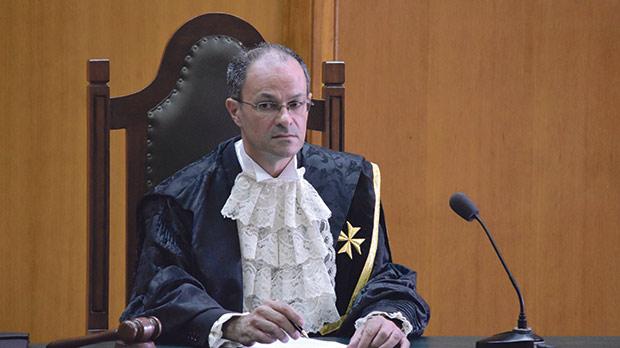Edward Scicluna, Chris Cardona and Konrad Mizzi chose today to file an appeal from a Magistrate’s order to start an inquiry into the hospitals privatisation scandal. Perhaps they’re superstitious and they were waiting for the planets to align.
Or perhaps they were waiting for Giovanni Grixti to be the duty judge to have his turn to hear the appeals being filed on that day.

Why are they so cocky?
Because Giovanni Grixti has already protected Konrad Mizzi (and Keith Schembri) once before reading the law regulating the opening of inquiries like nobody else does to mean that if a Magistrate is to be brought out of bed to conduct an inquiry the complainant has to prove the crime has committed first.
His was the famous decision that when Simon Busuttil referred to the Panama Papers he was quoting “inadmissable evidence”. Of course, he was. That’s why an inquiry was necessary to collect and preserve evidence that would be admissable.
The Panama Papers started investigations and led to resignations and convictions the world over. But Giovanni Grixti’s reading of our law would have, on its own, thrown the value of one of the most important journalistic discoveries in recent years right out of the window.
Fortunately that decision amounted to a delay not a definitive end to the prospect of a Panama Papers inquiry actually happened. Simon Busuttil filed his complaint again, as did Repubblika, and another Magistrate ordered the complaint to extend the ongoing inquiry on 17 Black being conducted by Magistrate Charmaine Galea. No great hopes coming out of there, but best reserve judgement until we know what she says she’s found.
In the meantime Magistrate Claire Stafrace Zammit, faced by a fresh Repubblika complaint this time about the privatisation of the hospitals, must have been acutely aware of Giovanni Grixti’s decision last January throwing out a lower court’s decision to start a Panama Papers inquiry.
So much so that she spent time in her decision addressing the arguments in the Giovanni Grixti decision and showing why they’re rubbish.
They’re exactly what you’d expect. The law provides for inquiries precisely because individuals, NGOs and journalists do not have the legal means to collect all the evidence needed to draw up charges for a crime. The law does not expect the complainants — in this case Repubblika — to be in a position to prove in the same way a prosecutor would at trial that a crime has occurred.
Journalistic work cannot be discarded merely because it is not forensically complete to secure a conviction. It is a vital tool for a democracy to find out what the powerful are up to.
Unless Giovanni Grixti is going to have a moment of uncharacteristic humility and acknowledge he’s learning a proper reading of the law from the Magistrates he outranks, it’s reasonable to expect him to repeat his own bonkers findings from last January and let the Ministers walk out free.
They’ll be able to say again that the documentation revealed about them and their activities are the subject of journalistic fancy and have never successfully proven in a court of law that they’ve committed crimes.
This is what state capture means. This is what lack of independence of the judiciary means. This is what the collapse of our democracy means.
You know what they’ve done. They know what they’ve done. Everyone knows what they’ve done. And yet they fully expect to get away with it.
